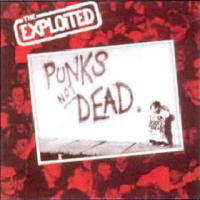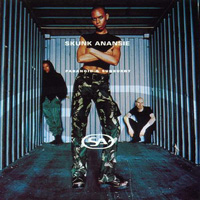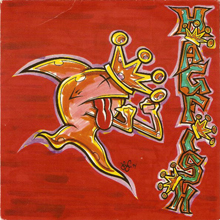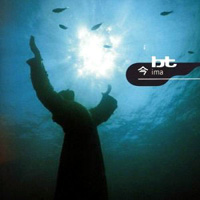 BT
BT
Ima (Kinetic/Reprise)
An interview with Brian Transeau
by Joshua Brown
If there’s one person in America who will step up and refute by example the ludicrous notion that electronic music is cold and unfeeling, it may well be Brian Transeau. Hailing from Boyds, Maryland (population: eight people) he’s already made quite a splash in England with club hits “Loving You More” and “Embracing the Sunshine.” These songs possess an intuitive design that surpasses most in the house and trance genres as well as an innocent spirituality that makes Enigma look like a stale gimmick. bt’s latest full-length outing, Ima (Kinetic/ Reprise) collects these singles and uplifting instrumentals like “Quark” and “Tripping the Light Fantastic.” The limited edition double CD has two versions of bt’s first Stateside single, “Blue Skies (featuring Tori Amos),” in which Brian took a recording of Tori’s ad-libbed lyrics to his song “Divinity” and sequenced them into various gorgeous arrangements. Also on the second CD is the 43 minute “Voyage of Ima” mixed by master DJ Sasha.
Please define “Ima” and “Tripping the Light Fantastic.”
I’m very interested in paleolinguistic anthropology, the study of the origins of language.
Do you study it formally or on your own?
I’ve studied it just out of interest. I’m a big quantum physics fan as well. I’m interested in all sorts of things: particle physics, brain chemistry, the effects of music on the brain’s physiology.
Have you found a practical application for the research into sound
vibrations’ effect on the mind and body?
Oh, absolutely. I mean, people have been doing studies since the `30s on the effects of sound on brain physiology, and the effects of everything from tantric meditation to group drumming, to shamanism, to religious rituals in the Peruvian Amazon where people are entering common brain states through repetitive auditory and phonic stimuli. There’s amazing stuff going on. “Ima” is a word that I came across looking up the linguistic roots of words. When I read about it, I thought it was a beautiful word, reflecting the spiritual standpoint that I come from musically. In Japanese, it means “now” in Hebrew, it means “mother,” in Scandinavian and Norwegian it means “future,” in an African dialect, it means “premonition.” The list goes on. It’s cool to think there’s a sound that people have made for millennia that means so many different things, and yet it’s the same sound. Music is the same way. People take in so many different things from the same music.
What was Berklee like?
Berklee was incredible, man. I really enjoyed the experience. I actually learned more from the students than I did from the teachers. It was one of those things where you’re learning a bunch of rules about what you are and are not supposed to do, then you go home and you jam with your friends. So many people from my graduating class are doing just great now, it’s scary.
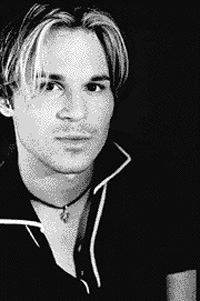 Is Berklee where you formulated the sound you have now, and in your days with Deep Dish (a Washington, DC DJ collective)?
Is Berklee where you formulated the sound you have now, and in your days with Deep Dish (a Washington, DC DJ collective)?
What I’m doing now is more of a culmination, a mish-moshing of years, starting with Rachmaninov, Wagner, and Chopin, going through to Cabaret Voltaire and Depeche Mode, then playing drums in ska and hardcore bands when I was fifteen. One of the dimensions that was added by Berklee was that I had never been formally exposed to jazz before. It harmonically expanded on what I was doing at the time because I had studied classical for so long. The most “out there” stuff you get classically is, like, Wagner, Bach, or Debussy, and then somebody shows you jazz, and you’re like, “Fuck! Are you allowed to do that?” It really expanded my outlook.
What about “Tripping the Light Fantastic?”
The story behind that song and “Quark” was I went hiking in the hills of Cumbria, north of Manchester, in the lake district in England. It was an 18 mile hike up Mount Helvelen. It was one of the most inspirational days of my life, the most majestic, breathtaking thing I think I’ve ever seen. You hike in a place like that and you experience the immensity of nature. You feel like an ant on the back of a big dog,, but in a good way. The song title came into my head that day and wouldn’t leave. I kept thinking “tripping the light fantastic” over and over, I don’t know why. The next day I went into the studio and recorded “Quark” and “Tripping the Light Fantastic.” “Quark” is the name of a subatomic particle. The song was actually written two weeks before the discovery of the top quark which proved quantum theory, so I thought that was really cool. The only thing I know about “tripping the light fantastic” is that it was said in some old movie.
What needs to happen before electronic dance music takes off in the United States?
You’re seeing the beginnings of it. This is probably the most exciting period of music in America in my lifetime. The last time I was this excited about music was when I was discovering New Order, Joy Division, Bauhaus, Fad Gadget, the Cure, and Cabaret Voltaire. What’s happening now sort of reminds me of that period. Over the last five years here, the major labels have pimped and prostituted “alternative music” to the point where it’s a haggard, eighty-year-old prostitute who nobody wants to sleep with any more. Fans of alternative, who I count myself among, feel short changed, ripped off.
I remember when grunge first came out of Seattle, and it was just considered a neat little “retro” movement.
Right, well, I was floored by the first Nirvana record. Smashing Pumpkins, one of my favorite bands, are being produced by Flood now. Mellon Collie and the Infinite Sadness was an ode to electronic music, and so was the Garbage record. The stuff has already crept into American culture without people realizing it. Eventually, it’ll become more and more overt. You’re hearing people like the woman that heads MTV saying we’ve scaled the Kurt Cobain/Dr. Dre family tree to its furthest limb. So, as a result, you’re seeing the Prodigy as a buzzclip, on fucking MTV! They’re playing the Chemical Brothers.
Orbital’s “The Box” has gotten a lot of radio time, too, right between Pearl Jam and Soundgarden.
Yeah, dude! It’s about to happen over here, and in a big way. I think the electronic community needs to focus on not letting ourselves get pimped like the alternative crowd. Once there’s a signing frenzy with the majors, they’ll really try to wreck it. But we have going for us a real sense of comraderie. Bands like Tortoise, Archive, myself, Orbital, and the Chemical Brothers, everybody knows about one another and what they’re doing, even if we don’t know each other personally. There’s a feeling of good will rather than the petty, competitive shit that you see in a lot of other scenes. So I think you’re gonna see another musical revolution in America. I mean, we re-elected the same President. People are happy, they don’t want all this angst-ridden shit. It’s like, fucking get on Prozac and get over it.
That’s what Ozzy has done. (gotten on Prozac)
(laughter) Yeah, let’s just enjoy ourselves for a change.
I’ve heard there’s a jungle track on your upcoming release. Will you be doing more with drum ‘n’ bass?
Yeah, I’m very interested in drum ‘n’ bass. I’d never want to do anything that’s derivative, but it’s influenced my music. I plan to keep experimenting with it, `cause it’s one of the first types of music that’s really knocked me out in years. You say to yourself, “This is completely new! I’ve never heard anything like this.” With the stuttering snares and the subsonic bass, it’s just bad-ass! I went to Speed, a club in England, with LTJ Bukem, Goldie, and others spinning. It was an exceptional experience.
Does jungle tie in at all with your studies of sound waves’ effects on the body?
It’s interesting that you ask that, because Tori Amos and I were having a conversation about jungle, about how that subsonic stuff releases a lot of energy blockages. You can call it the meridian system or chakras, and those subsonic frequencies stimulate the release of stores of energy. In my conversation with Tori, she said, “I have friends who have gone to a jungle club and awakened their kundalini.” I almost smacked her, she scared me so bad. I was, like, “how do you know about that?” And she says, “you know, it’s that serpentine, coiled energy in your base chakra.” So I’m like, “you know what, Tori, just fuck off, ’cause I can’t deal with you.” She’s one of those people who just busts stuff like that out all the time. I’ve read stuff like that in these crazy, esoteric books and she just rattles it off out of the blue. She freaks me out. So jungle is really powerful music, but I don’t like those cacophonous, disharmonic subsonic basslines. That stuff can be bad for you.
What bugs me is when they don’t have a balancing counterpoint for the beats, like a nice ambient wash over it. A lot of U.S. jungle lacks the atmospherics. In terms of playing for an audience, did you start out small-time and then become huge all of a sudden, with British events like Tribal Gathering?
I’ve played at clubs for five hundred people where it’s really intimate and, I’ve played at the Phoenix Festival for, like, nine thousand people, and at events like Tribal Gathering. The thing that’s so phat about England and Europe in general is that there’s a real sense of rapport between the audience and the performer. Here, the audience and performer are separate. The audience stands there and watches, sort of “taking” from you. It’s an energy pull, as opposed to an exchange of energy. In Europe I’ve felt like I was pouring out everything I’ve got, and the audience is putting it back just as fast. When you’re done, you walk away feeling like you know everybody in the room.

